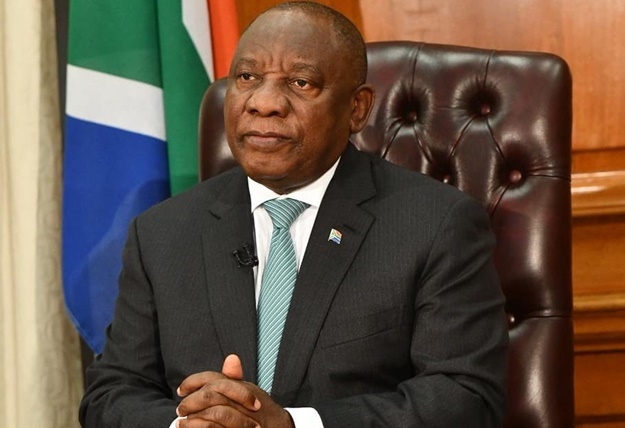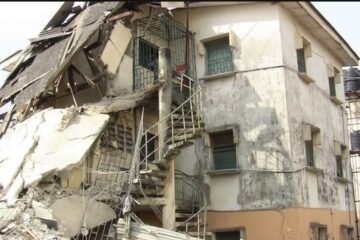In his fifth address to the nation since the first Covid-19 case was reported, President Cyril Ramaphosa gave direction on three of the most pressing matters on which South Africans need urgent clarity: the nature of economic interventions, the extent of social support and an idea of life after lockdown, writes Pieter du Toit.
President Cyril Ramaphosa’s fifth address to the nation during the unfolding crisis caused by the spread of the coronavirus was arguably his most anticipated.
During the last two weeks, it has become clear the country is paying an enormous price for the national lockdown, announced on 27March and extended on 9 April.
Shutting down the economy, closing schools and sealing the borders to prevent and contain the spread of Covid-19, the disease caused by the coronavirus, comes at a price tag of almost R20 billion per day. And a country already teetering on a fiscal precipice can ill afford a prolonged shuttering of business.
It has led, as Ramaphosa said in his address, to the “extreme decline in supply and demand” and has in turn had a devastating impact on people’s wages, salaries and livelihoods.
Millions of South Africans are increasingly and alarmingly struggling to ensure they have food to eat. They are running out of money and growing desperate.
READ | Gauteng govt gives 120 000 families food hampers
In his address, Ramaphosa gave direction on three of the most pressing matters on which South Africans need urgent clarity: the nature of economic stabilisation interventions, the extent of support to prevent social distress and possible unrest as well as a glimpse of life after lockdown.
The announcement that Finance Minister Tito Mboweni will soon table an urgent and special budget in the National Assembly is unprecedented in democratic South Africa. So too the approach to the World Bank, International Monetary Fund, New Development Bank (the Brics Bank) and African Development Bank for financial assistance to help fund the half-a-trillion rand effort to combat the effects of the coronavirus.
It is still unclear how much of the R500 billion will have to be loaned from international financial institutions – or from domestic financial institutions – but the political fight inside the governing alliance has clearly been won by the pragmatists.
The only way to successfully ensure a responsible medical response to the virus, as well as an effective economic recovery plan, is to access available funding. The government simply must throw money at the problem. And the radical economic transformationists, led by Ace Magashule, lost the argument.
The president also announced a range of measures – due to be elaborated upon by Mboweni – to support small and large business, with billions of rand earmarked to help pay for operational expenses, salaries and other costs caused by the lockdown.
In the coming weeks, government will announce plans for a carefully considered reopening of the economy. It is vital that we balance the need to keep SA safe, & protect the most vulnerable, while beginning the difficult task of economic recovery. #COVID19 #CoronaVirusSA pic.twitter.com/fdXk6TKl8p
— Presidency | South Africa ???? (@PresidencyZA) April 21, 2020
There are a series of tax breaks to help mitigate and save enterprises, while the government will guarantee bridging finance provided by banks to the tune of R200 billion.
In order to put money in the pockets of the poor, those struggling to put food on the table and many workers who relied on daily or weekly wages to survive, the government will spend R50 billion on a new coronavirus grant and to augment existing ones.
This could be proven by history to be one of the Ramaphosa’s most important interventions, given that reports of food riots, hijacking of food trucks and the looting of stores are becoming a regular occurrence.
Instability and widespread social unrest won’t only prevent the government’s medical response from gaining traction, it will kill off any hope of economic recovery – and directing money straight to the poor should help alleviate the worst of the economic downturn in the short term.
Ramaphosa did not give much detail about life after lockdown, which is still supposed to end next Friday. The government, he said, would take a “risk-adjusted approach” when deciding how to reopen and restore the economy and society.
There’s no doubt he knows that another extension of the lockdown will be unpalatable to society and will do exponential harm to the comatose economy, a matter which he undertook to address during another speech on Thursday.
The deployment of almost the whole defence force – more than 75 000 service members – to assist the police in combating Covid-19 and enforcing the lockdown regulations could indicate that South Africans are in for an extended period under lockdown conditions, with a phased approach during which sectors of society and the economy will gradually be reactivated.
READ MORE | Ramaphosa mobilises SANDF in one of the country’s biggest deployments in history
He did not, however, refer to the SANDF deployment.
The key to Ramaphosa’s mini-Marshall Plan will be planning and implementation. Even his staunchest critics, who rail at his glacial pace of reform and reluctance to move boldly, agree he has spoken with authority and empathy. He must, however, ensure his direct reports take their line from him.
The difference in quality of leadership between the head of the executive and ministers like Fikile Mbalula and Bheki Cele has been glaring. The president cannot leave to chance the implementation of a R500 billion economic stabilisation and recovery package to non-serious ministers like that. The stakes are too high and the repercussions too severe.




